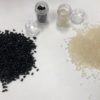Nikada/iStock.com
Oktoberfest is impressive by any count: More than 6 million visitors descend on Munich, Germany, for more than 2 weeks of revelry; during that time, they consume 250,000 pork sausages, half a million chickens, and 7 million liters of beer (compared with just 1.1 million liters of water and lemonade). But what about the, er, vapors that result from such a large celebration?
To find out how much methane the world’s largest folk festival produces, researchers at the Technical University of Munich spent several days sampling air around the perimeter of the festival in 2018—organizers told them that because of safety concerns, they wouldn’t be allowed inside.
When they assembled their data—and took into account wind speed and direction, they estimated that the festival put off 1500 kilograms of the greenhouse gas methane. On average 6.7 micrograms of methane were emitted per square meter per second—10 times that of the city of Boston, they report in a paper posted as a preprint in Atmospheric Chemistry and Physics, where it is under review.
This much methane cannot be explained merely by emissions in people’s breath and farts, the researchers argue, but is much more likely to come from gas-powered cooking and heating appliances. Because festivals like Oktoberfest can be significant sources of methane, they should be included in future emission inventories, the researchers conclude.



